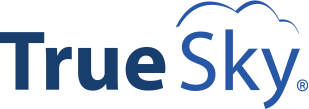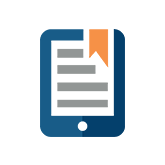Accounting and Your Budget: How Your Accounting Method Can Affect Your Budget

When it comes to setting up your budget, you’ve got several choices to make.
You can choose to use the annual budget model, or a rolling forecasting model.
You can manage it entirely through the office of the CFO, or you can include other departments.
And finally, you can choose which accounting method to use: the accrual basis or cash basis method.
If you’re struggling to decide which accounting method to use – or whether it might be time to switch accounting methods – here’s a quick primer on what each method is, and how these accounting methods can affect your budget.
Accrual basis
The accrual basis method of accounting is fairly simple. Revenue is recorded when a transaction is completed, rather than when the cash actually comes in.
For example, let’s say you run a consulting business that sells products or services to other businesses, you may complete a transaction in August, but not see the actual cash until October. Despite that, you would record the revenue for this transaction in August.
You’d handle expenses the same way. Using the same example, if you paid for travel expenses for one of your consultants on your company’s credit card, you would record the expenses at the time they were incurred – even though you wouldn’t technically pay for them until a month or so later.
Many companies use the accrual method of accounting, as it gives a much clearer picture of a company’s actual profitability. For publicly traded companies that must answer to shareholders, this method can be preferable. Because the revenue is matched with expenses in any given month, the company’s budget can show less severe ups and downs than with the cash basis accounting method.
Cash basis
Popular among smaller and medium-sized businesses, cash basis accounting means that revenues and expenses aren’t recorded until the cash actually changes hands.
For example, if a nonprofit purchases supplies for its after-school program on an account in July, but doesn’t pay that account until August, the expense would be recorded for August. Likewise, if it was awarded a grant for a new program in September and received the funds in November, those funds are recorded for November’s income, not September’s.
One reason a business may choose to use the cash basis method is that it can make it easier to keep track of your cash flow. Since cash is used as the basis for all transactions, CFOs know at all times how much cash the business has access to.
Whichever method you use, a good budgeting and forecasting solution can help.
Not every company has a large accounting staff that can handle every aspect of a company’s finances and budget. No matter which method of accounting you’re using, it can be very helpful to use a flexible, intuitive budgeting and forecasting solution like True Sky.
One of True Sky’s major benefits is that anyone in the company, whether they’re in the finance department or not, can use the system. True Sky is based in the Excel interface, so it’s already familiar to most workers. Users can quickly build and deploy new templates and data models on demand, and access their data in real time, ensuring that everyone is working with a single version of the truth.
In addition, CFOs and other administrators can implement validation rules to improve the quality of the data, while also configuring approval flows to ensure commitment and accountability.
Want to learn more about how accounting methods will affect your budget? Read our blog post “The Shift to Predictive Accounting.”



